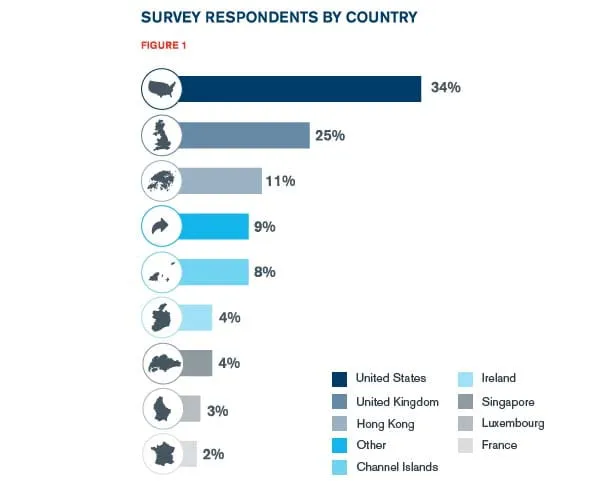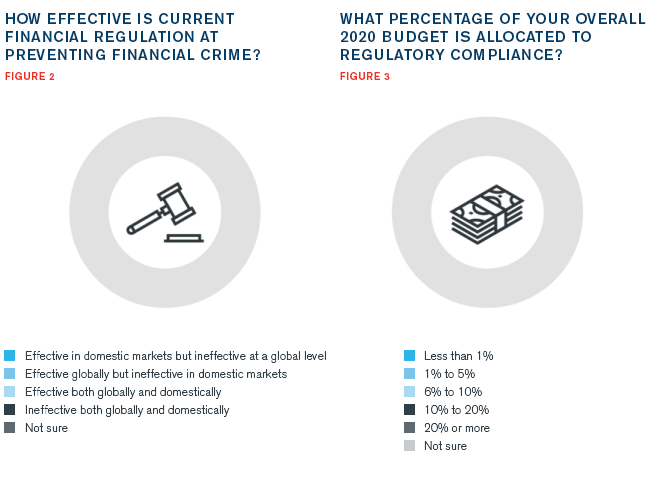Top Line Findings
- Almost two thirds (64%) of respondents say the current regulatory regime is effective in preventing financial crime
- But 33% say they spend more than 5% of annual budgets on compliance
- New York (56%) surges ahead of London (34%) as world’s preeminent financial center
- But 30% say UK has the most favorable regulatory regime for financial services, ahead of New York (26%) and Singapore (18%)
- The war for talent (24%) and cost of compliance (20%) biggest challenges facing financial businesses
- Almost half (47%) say investor demand will drive environmental responsibility in the financial sector, against 25% for regulation
Introduction
Study the natural landscape for any amount of time and you quickly become aware of the range of powers that have shaped it. From seismic action to gradual erosion and the daily wear of wind, waves and rain -- It is layer upon layer of never-ending change. And we never know for sure when the flood waters might come.
As it is with nature, so it is with regulatory environment. Each year, as part of its Global Regulatory Outlook, Kroll conducts an online survey of financial services executives around the world to get their views on issues that are shaping and changing the industry.
This year’s outlook report reveals a landscape that is the product of historic failures, but also continued innovation and challenges. And it changes still.
At Peace With the World
We surveyed 240 senior executives working in financial services across banking, asset management, hedge funds, private equity, broker dealers and a range of other business. They come from the U.S., UK, Asia and a number of other jurisdictions. Seven out of ten work for organizations with operations in more than one country.

Overall, our findings suggest a level of acceptance of the current regulatory regime. Close to two-thirds say that the current regime is effective in preventing financial crime (64%), for example—at least when it comes to their own territory. Even though fewer (34%) are willing to vouch that it is effective on a global level, this is a vote of confidence, and all the more remarkable given that, as we’ll see, they are not blind to regulations’ faults.

Moreover, those territories named as having the most favorable regulatory regimes—notably the UK (30%) and U.S. (26%)—are among the most mature. There is also a strong home bias: executives were most likely to name their domestic jurisdiction as having the most favorable regime.
On these findings, those surveyed would seem relatively satisfied with the current regulatory regime.




















